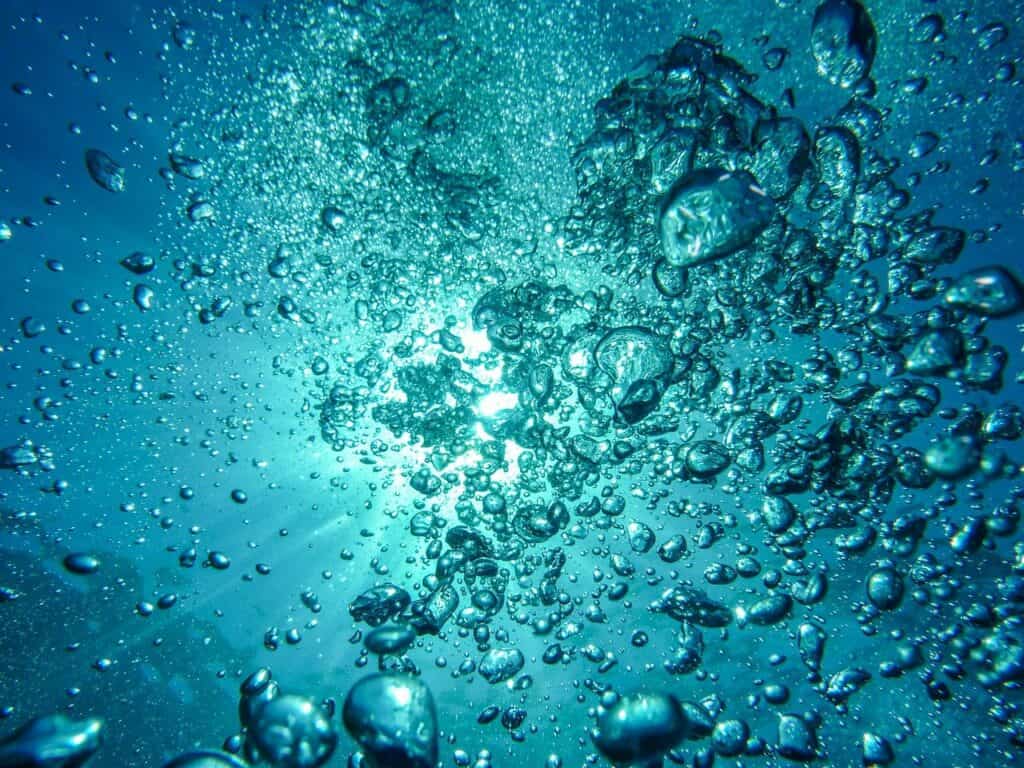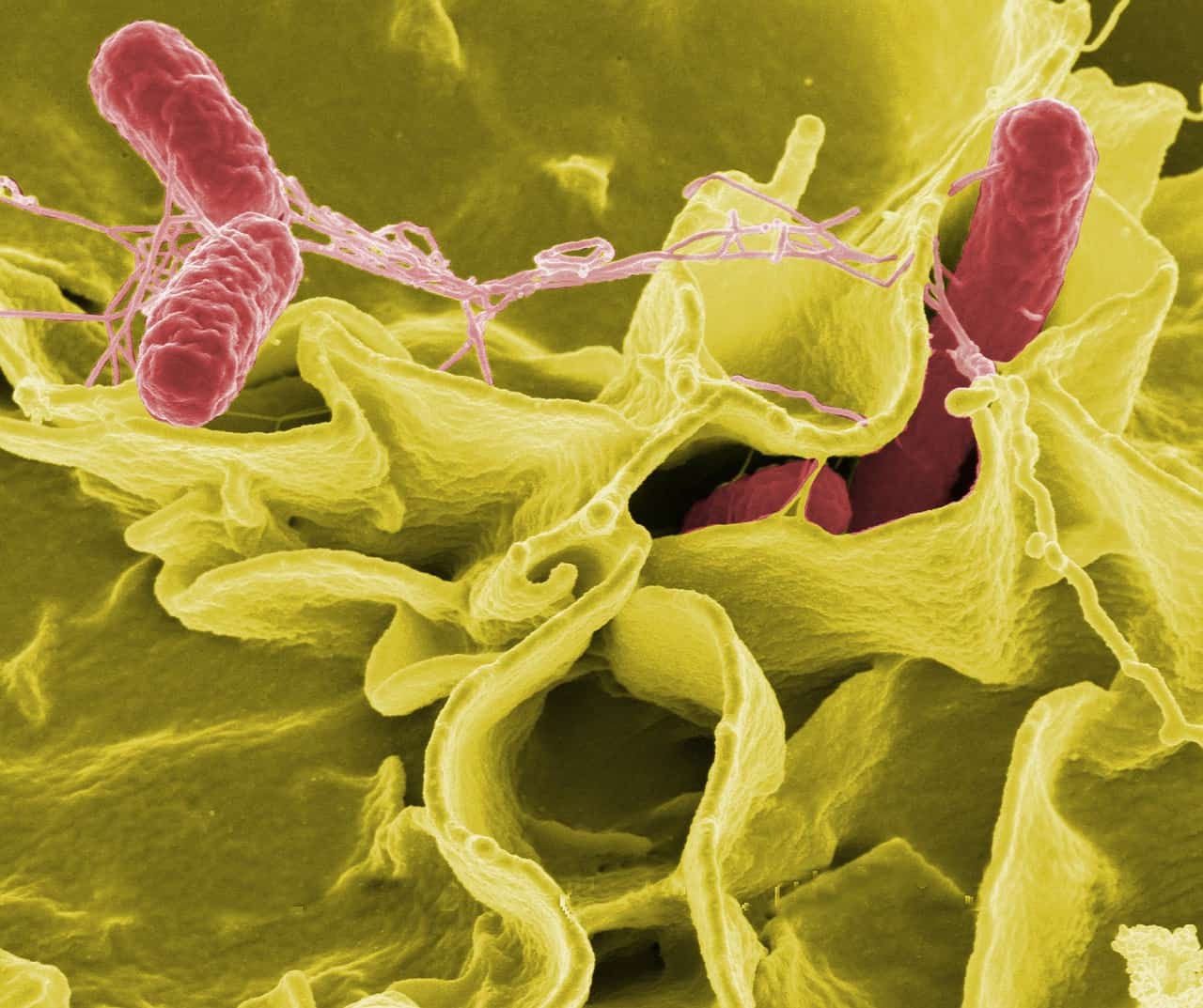Ice and water do not weigh the same.
Ice is comparatively lighter as it is less dense than water. Thus, given the same volume of ice and water in different containers, water will weigh more than ice.
For perspective, a cubic foot of ice weighs 57.2 pounds, which is about 5 pounds less than the weight of a cubic foot of water.
Many people would assume that water and ice would weigh the same since ice is essentially water in solid form. You would also be forgiven to speculate that ice would weigh more since, generally, solids are heavier than liquids.
However, that is not the case with water. This article will expound on why there is a difference between the weight of water and ice.

Why Water Weighs More Than Ice
Ice is water in solid form. Water becomes ice when its temperature falls to the freezing point, which is 32⁰ Fahrenheit or 0⁰C.
In most substances, density increases with the decrease in temperature because the substance contracts as the molecules get closer to each other.
Water does not follow this script, and it is the only non-metallic fluid whose density decreases as the temperature falls. Therefore, the colder it is, the less dense it becomes.
By the time water freezes over, it is 9% less dense than it is in liquid form.
Water molecules are held together by hydrogen bonds. The bonds are stronger and closer together in liquid water, which is why liquid water is denser than ice.
As the temperature falls to the freezing point, the hydrogen bonds drift further apart as the water expands and becomes less dense. This explains the phenomenon of ice floating in water.
Therefore, given a liter of water and a liter of ice, water will weigh more because it is denser. Water is heaviest at 39⁰ C as this is the temperature when the molecules are closest together.
Does Ice Get Heavier When It Melts?
It is commonly thought that weight changes as matter changes forms. However, this is not necessarily true. If you have a pound of water in a pail and freeze it, you will still have a pound of ice.
It will neither get heavier nor lighter because the mass remains constant. As per the law of conservation of mass, there was no creation or destruction of molecules, so there would not be any difference in weight.
Similarly, ice does not get heavier when it melts- it retains its weight. While water is heavier than ice, the weight will not change if the mass stays the same.
Therefore, if you melt a pound of ice, you will still get a pound of water.
When the matter and mass of water remain the same as water changes form, it will weigh the same in its different forms. Volume, however, will change as the density changes between water and ice.
Ice will occupy more space than water. If it is one liter in liquid form, then it will be more than a liter in ice form.
Do you want to gain a better insight? Watch this video where an experiment is conducted:
Does Ice Take Up Space in A Drink?
Every form of matter that has mass occupies space. Ice, which is water in solid form, is matter and, therefore, occupies space.
So, yes, ice does take up space in a drink. The amount of space it takes will depend on whether the ice is in small cubes or one big chunk.
If you put a few cubes of ice in, say, a glass of lemonade, there will not be significant displacement. The cubes will float in the glass and melt slowly.
The level of lemonade in the glass will likely remain the same when the ice melts. If anything, the melted ice, which is denser, will take up less space and result in a watered-down drink.
If you insert a block of ice in a glass full of lemonade, there is likely to be displacement, and the liquid may overflow. This is because, for one, the chunk will not float.
It will occupy space up to the bottom of the glass. In fact, it takes up a bit more space in a drink than liquid water because ice is less dense and has more volume than water.
How Much Ice Will a Gallon of Water Make?
A gallon of water is equivalent to 8.35 pounds. Provided the mass remains constant, a gallon of water will make 8.35 pounds worth of ice.
The only thing that will change is the volume, in that ice will occupy more space than water.
As we have established above, mass and matter remain the same, following the law of conservation of mass.
Since no molecules are added or destroyed as water transforms from liquid form to solid form, the quantity of ice formed remains the same as that of the water.
Since the density of ice is 9% less than that of water, it follows that ice will have 9% more volume than water. Therefore, ensure that you have a big enough container to accommodate the extra volume when the ice is formed.
Final Words
Ice and water do not weigh the same. One liter of ice is less dense than a liter of water and, therefore, lighter. Also, water expands as it reaches the freezing point, which means that ice occupies more space than water.
This aspect of water, where it becomes less dense when it changes form to ice, explains why ice floats on water. It is why icebergs are visible on the surface of the water but do not reach the ocean floor.
The only instance where water and ice will weigh the same is if the water in a container is frozen. The mass of the water remains the same, so the weight does not change- what varies is the volume and density.





